Empowering Nepali Women Through Skills Training
October 11, 2019
For those volunteers who have been to our Nepal Earthquake Relief program, you have undoubtedly worked alongside our wonderful masons. In light of the upcoming Nepal volunteer season, we proudly wish to highlight our Female Mason Training Project (the “project”), which celebrates the crucial role women play in building back better and lifting up their community in the wake of a devastating disaster.
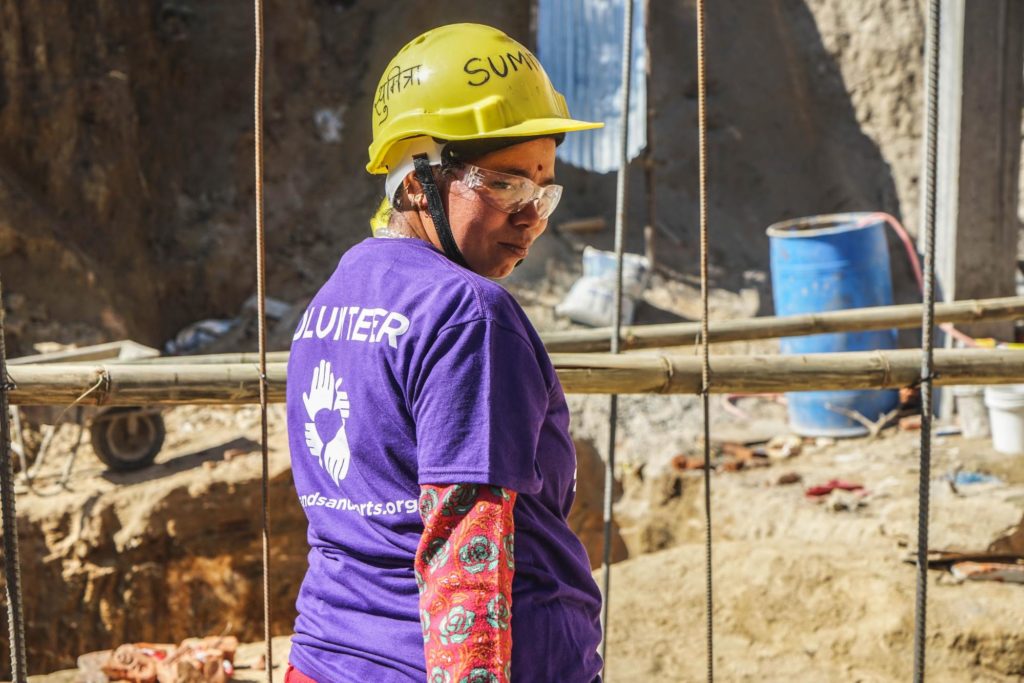
How we got started
This project was born out of a need for skilled labor to rebuild after the 2015 earthquakes in Nepal, which destroyed approximately one million houses and 8,000 schools. In the Sindhupalchok District where the project is taking place, over 90% of the buildings were severely damaged or destroyed. The Post Disaster Recovery Framework states that Nepal needs 60,000 skilled construction workers to complete the rebuilding of houses within five years.
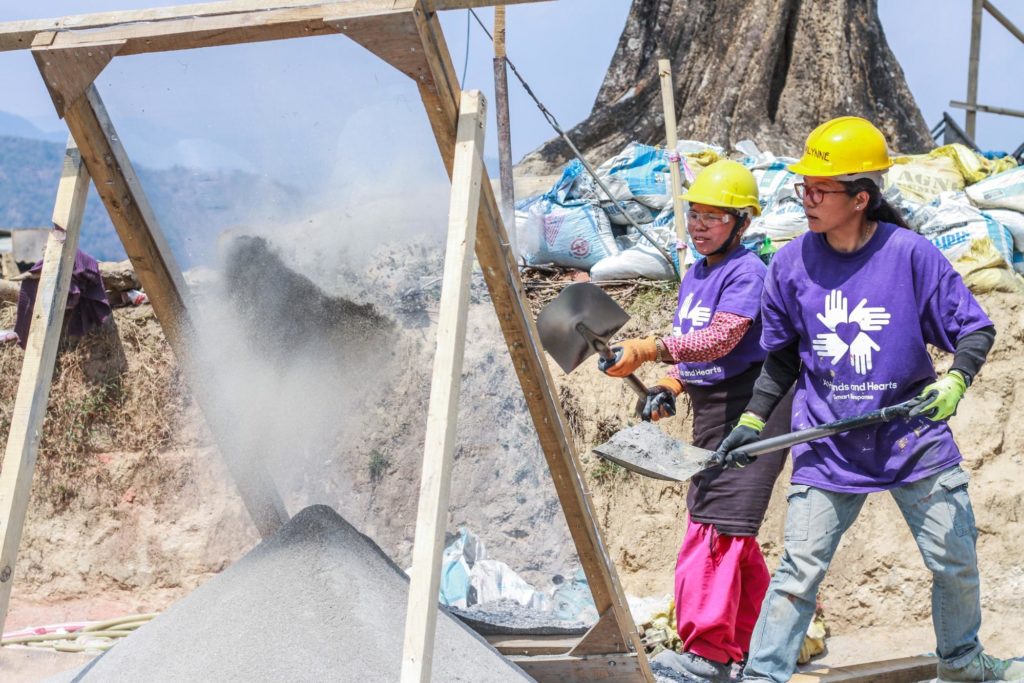
Our Project
Even before the earthquakes, able-bodied men would leave their families and communities to go abroad to find job opportunities not available in Nepal. This socio-economic gap has increased since the disaster. Not only does it leave many families in poverty, but it has stalled the rebuilding process. This critical need for qualified workers presents a major challenge for Nepal. It is also an opportunity for the advancement of women if they can access the right skills and support.
Issues of gender inequalities can often surface or worsen after a disaster, with women and girls being the most vulnerable.
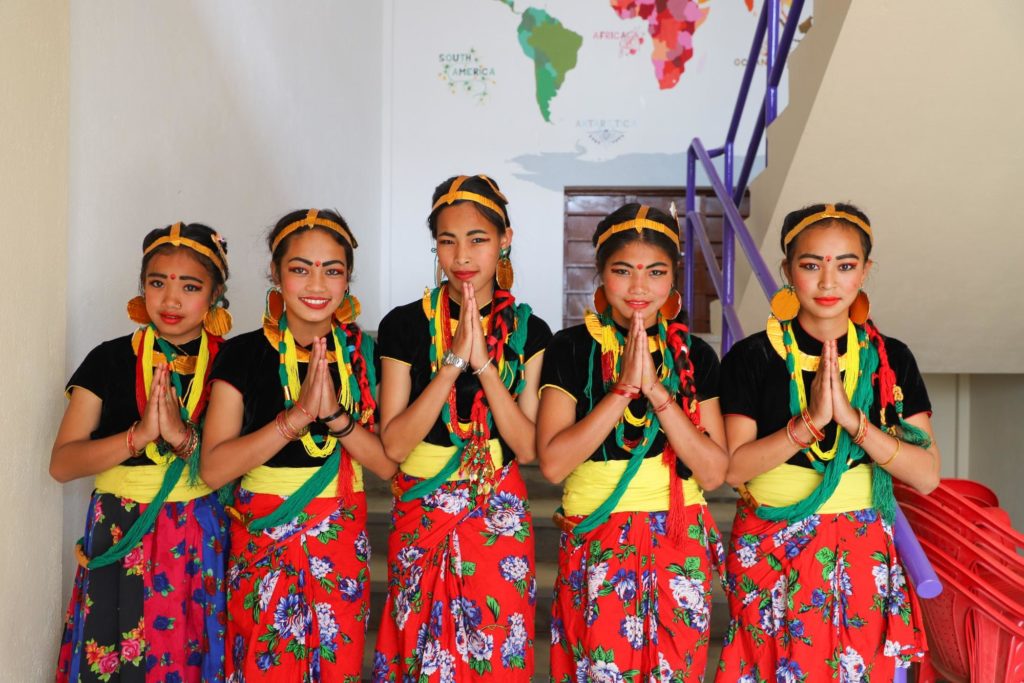
Gender balance is essential for economies and communities to thrive and, as proved in our project, to rebuild after disasters. This project trains local Nepali women in earthquake resilient construction skills as a way to expand their economic resources and provide social and economic empowerment.
- AHAH carefully selected women who are the sole wage earners for their households and need job-skills training the most.
- A professional Nepali mason is in charge of teaching disaster resilient building methods.
- The trainees work in rural communities to rebuild primary and secondary schools.
- Trainees go through weekly and monthly reviews and receive a customized tutorial to their strengths and weaknesses.
- This is an accredited course that provides an independent certification of their skills.
- The program runs over a 4-5 month period. Unlike short-term programs, this long-term commitment ensures a higher level of skill and consistency.
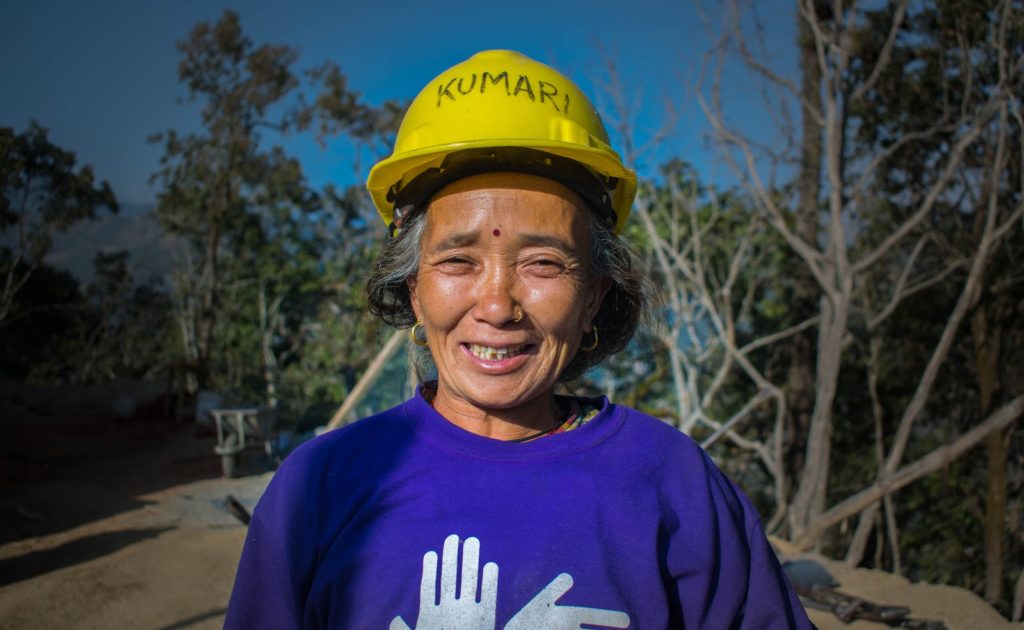
Balance for better
The aim of the course is to help women break into higher paying jobs traditionally reserved for men. The trainees, like our staff and volunteers, work six days a week and earn $10.50 per day. This wage is in line with the local economy for skilled labor.
These masons dispel the stigma that women cannot work in skilled construction jobs. Additionally, our female staff and volunteers are ever-present examples in the community that women can not only do “men’s work,” but they deserve the same respect and pay as their male counterparts. Together, we are raising awareness about gender equality and fair opportunities for women and men.
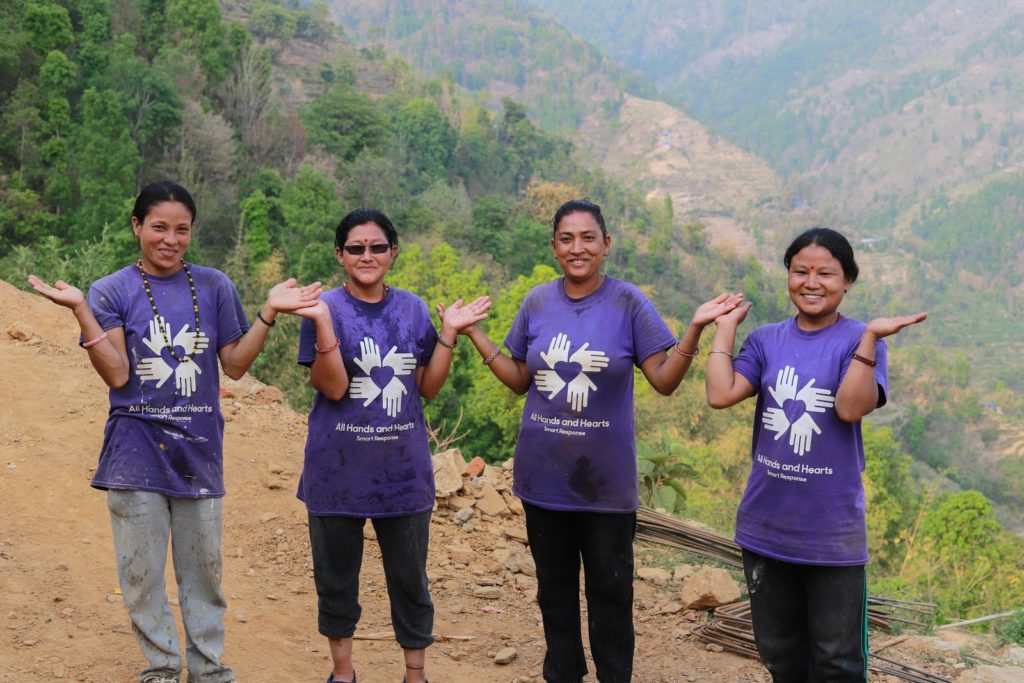
Malati, one of the trainees, tells us she likes working with people from all over the world. She feels, “treated equally by everyone [at AHAH], even though [she’s] a woman.”
Malati had tried to learn from a government engineer who went to the community to show homeowners how to rebuild earthquake-safe homes. She stopped when community members made fun of her. Now, she says, she has proof to show her neighbors she can get the job done.
Malati and the other female masons champion gender balance by rebuilding a better community. They are a testament to the strength of women and, through this strength, they lay the foundation for future girls and women.
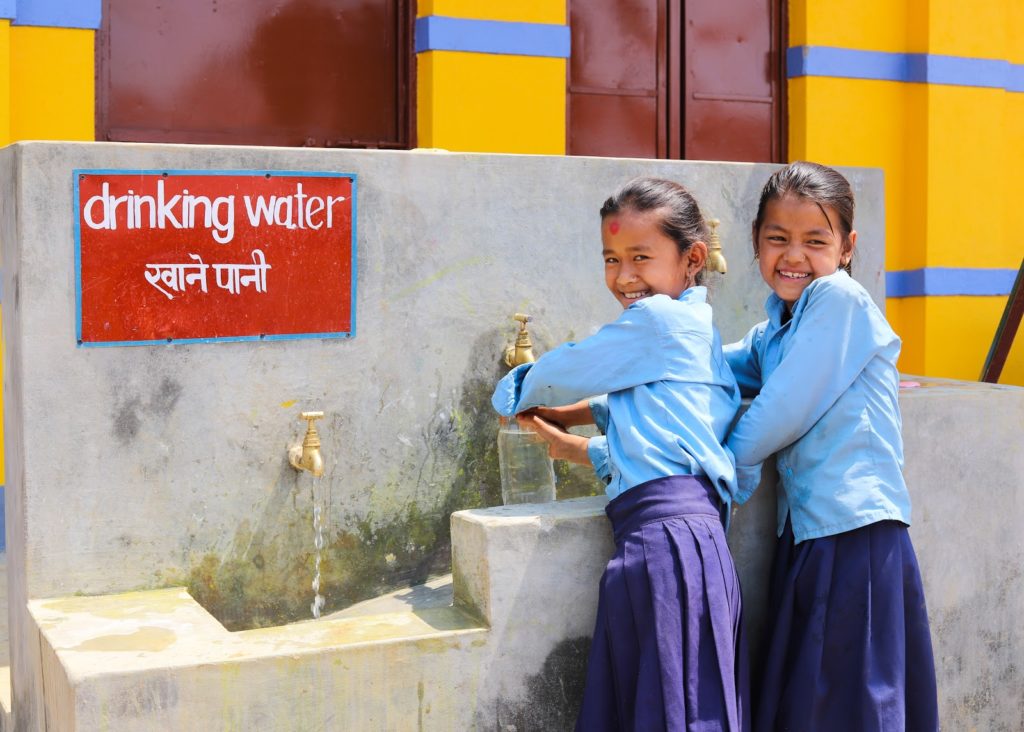
FOOTNOTES
Story by Huan Song and Rachel Deery, Photos by Jas Chapagain for All Hands and Hearts












